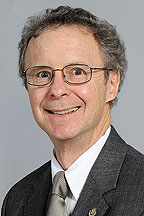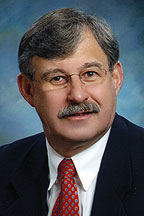The article below appears in today’s Charleston Daily Mail.
by Billy Wolfe
Daily Mail staff
CHARLESTON, W.Va.–Lawmakers are expected to consider a proposal to give recent college graduates a major tax break and additional financial incentives to keep them living and working in West Virginia.
Officials with the Charleston Area Chamber of Commerce proposed a plan to lawmakers Wednesday morning that would eliminate state taxes on $25,000 of income for recent college graduates and refund up to $500 in interest paid on their student loans.

McCabe
Chamber President and CEO Matt Ballard said the state is facing a continued loss of its best and brightest to other, more competitive states.
“We know we are losing a lot of our young folks, and we said, ‘What can we do to keep them?’ ” he said.
One of the biggest financial worries faced by those entering the job market is the repayment of student loans. Ballard said the plan could make West Virginia a more attractive destination to college graduates, regardless of where they went to school.
He cited findings by the chamber that recent college graduates often decide where they want to live before they have landed a job. He said more tax incentives aimed at that age group might draw more people to the Mountain State.
“If you make $25,000 a year, you would pay no state taxes at all,” he said of the chamber’s plan.

Browning
The reduction would be available for two years following graduation from a qualified institution of higher education with a two-year, four-year or advanced degree. The reduction would begin on Jan. 1, 2011.
Also, state residents younger than 40 who live and work in West Virginia would be eligible for a $500-per-year tax credit on interest paid on student loans. Federal tax code already offers a reimbursement for student loan interest, but Ballard believes West Virginia would be the first state to have a similar program.
“I’m 90 percent sure that no other state is doing this right now,” he said.
State Sens. Brooks McCabe, D-Kanawha, and Richard Browning, D-Wyoming, have thrown their support behind the bill.
“I think it sends a strong message that we want to keep our young professionals,” McCabe said. “In those cases where someone has a choice of staying or moving out, I think these kinds of incentives will tilt the scales to West Virginia.
“Our future is in retaining our young leaders,” McCabe added.
He also praised the chamber and the group Generation Charleston for coming up with the proposal.
A first draft of the bill has not been finished, and there are no cost estimates.
Deputy Revenue Secretary Mark Muchow said he would not speculate on cost until the legislation is drafted.
Kanawha County Commission President Kent Carper said he has serious doubts about the proposal.
“I’m not saying that it’s not time to start thinking outside of the box, but I would urge great care and caution before I start another entitlement,” he said. “Entitlements can be dangerous.”
Carper cited the state’s plans to cut budgets and its struggle to handle costs like health care benefits promised to public employees in retirement.
“Who is going to pay for this?” he said. “Until we solve the health care problems in this state, I would really question starting something new.”
T.J. Meadows is the public policy director for Generation Charleston, which works to attract young professionals to the city. He said cost is not as big a challenge as it may seem.
“The thing to keep in mind here is this: With keeping and attracting new talent to the state, we will be growing the pie. We are hoping we will not only keep the homegrown professionals, but also will attract others to the state as well,” he said.
Carper said the proposal might be putting the cart before the horse. He said the issue is not just about keeping educated workers in the state, but about providing those workers with good-paying jobs.
This would not be the first time that state legislators have considered measures aimed at keeping college graduates working in the state. When former Gov. Bob Wise introduced the Promise scholarship, one of his original intentions was to keep students in West Virginia once they graduated.
A 2009 study found that recipients of the Promise Scholarship were a little less likely than other graduates to remain.
The study showed that 62 percent of Promise graduates were working in the state, as opposed to 67 percent of non-Promise graduates.
Comments are closed